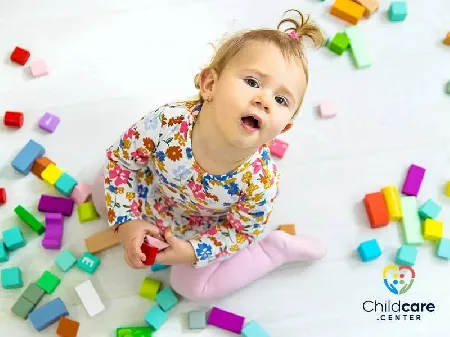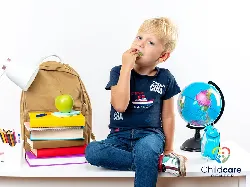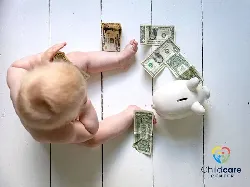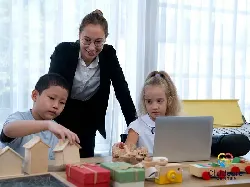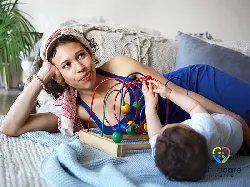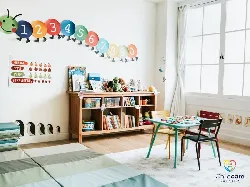Little Things You Can Do Every Day to Make Your Child More Independent
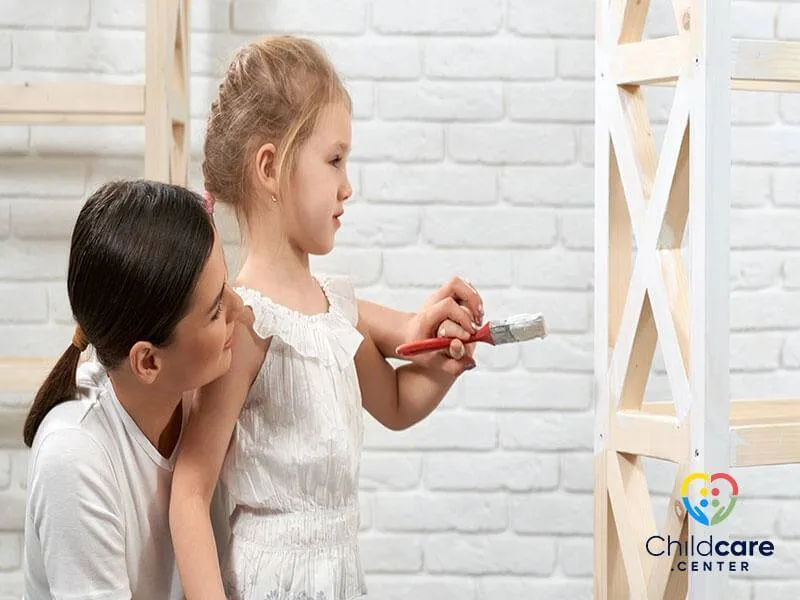
As a parent, it can be challenging to find the right balance between nurturing and allowing your child to grow and become more independent. While it's important to be there for your child and guide them, it's also important to give them space to explore and learn on their own. Supporting your child's independence also involves providing them with opportunities to explore their interests and passions. Encourage them to pursue hobbies, join clubs or sports teams, or engage in activities that align with their talents and interests. This helps them develop a sense of identity and autonomy, as well as build valuable skills and relationships outside of the home.
What does a child need the most?
A child needs many things to grow, but the most important of all is independency. Dependency on parents, siblings, or other adults for social and emotional support can be a great thing for children during their formative years. But independence should be encouraged so that children can develop their sense of self-worth and self-assurance.
It’s important that children learn how to think and make decisions on their own without relying on others. This will help them build confidence as they grow up, allowing them to take charge of their lives and shape their future. Independence also teaches children how to take responsibility for their actions, which is vital in helping them become independent adults. It's essential that parents provide a secure environment where children are free to explore new ideas, express themselves and build relationships with others without fear of consequences.
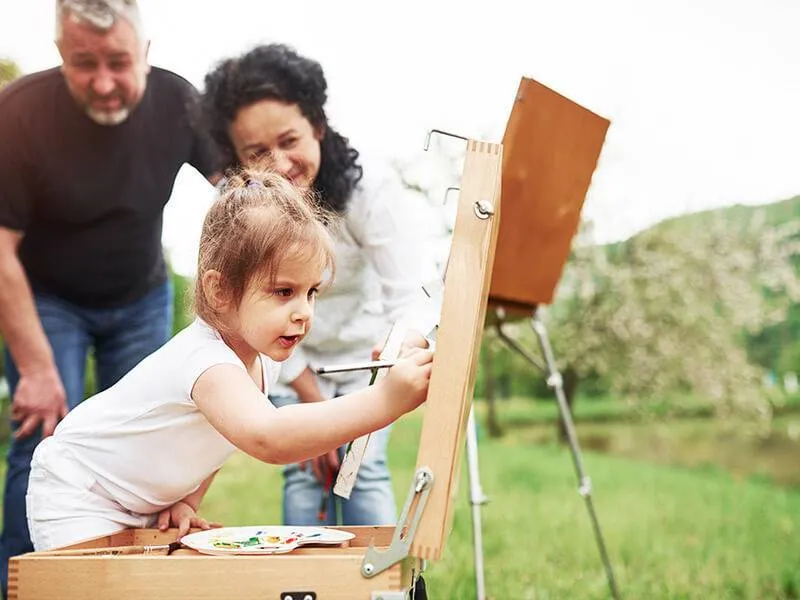
By providing the right atmosphere for independence and growth, parents can help children develop into strong, successful individuals who know how to take control of their lives.
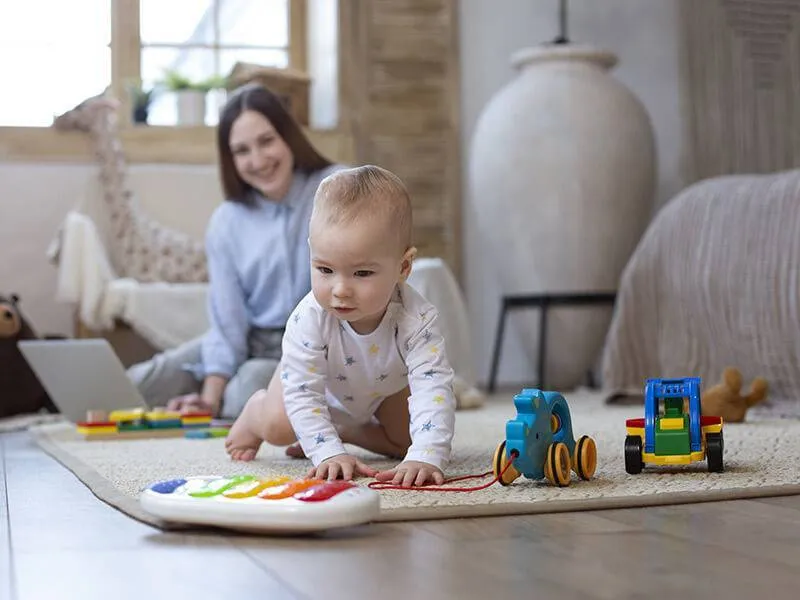
What are the 6 areas of child development?
Child development can be broken down into six main areas: cognitive development, language development, social and emotional development, physical development, sensory and perceptual development, and creative development. All of these areas are interconnected and rely on each other for a child's overall growth and development.
The following are brief explanations of each of the six development areas for children:
- Cognitive development: This refers to a child's ability to learn, think, reason, and problem-solve. It includes skills such as attention, memory, and logical thinking.
- Language development: This includes a child's ability to communicate with others through both verbal and non-verbal means, as well as their understanding of language and ability to use it to convey meaning.
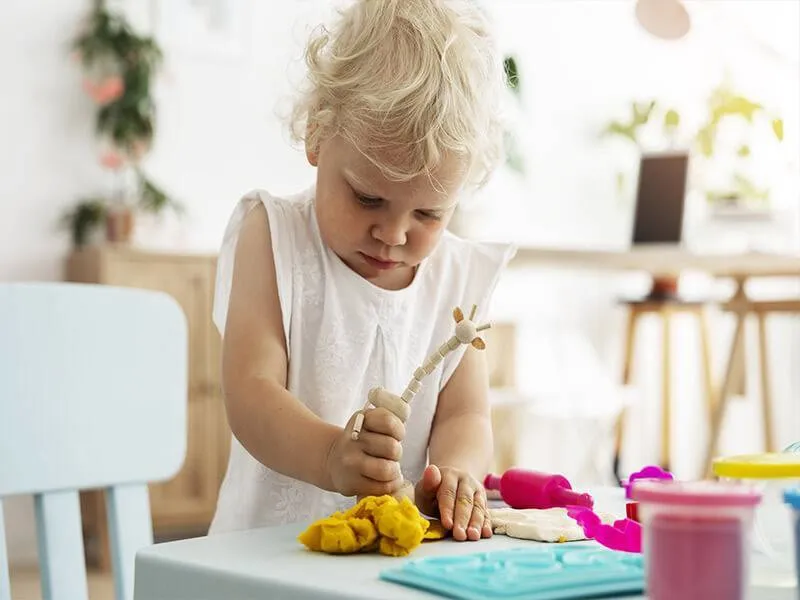
- Social and emotional development: This involves a child's ability to form relationships with others, manage their emotions, and understand social cues and norms.
4. Physical development: This refers to a child's growth and ability to move and coordinate their body. It includes both fine motor skills (such as writing and manipulating small objects) and gross motor skills (such as running and jumping).
5. Sensory and perceptual development: This area of development includes a child's ability to process sensory information from their environment, such as through sight, sound, touch, taste, and smell.
6. Creative development: This refers to a child's ability to express themselves through various forms of art, such as drawing, painting, and music, as well as their ability to think creatively and come up with new ideas.
In the article "The Interaction Between Children's Developmental Capabilities and the Courtroom Environment: The Impact on Testimonial Competency" the Canadian government explains all development areas of children however in the Court System as a witness and its impact on their development
At what age do kids become more independent?
As children reach the age of 2-3 years, they start to become more independent as they become more self-aware and develop their own personalities.
They start to make simple choices such as choosing which toys they want to play with, what clothes they want to wear, and what food they want to eat. They may also start to assert their independence by saying "no" to things they do not want to do or expressing their own opinions.As children continue to grow and develop, they become more independent in other areas as well, such as taking care of themselves and managing their own tasks. For example, they may start to learn how to dress, brush their teeth, and use the bathroom independently.

They may also begin to take on simple chores around the house, such as picking up their toys or setting the table. It is important to note that every child develops at their own pace, and some children may show signs of independence earlier or later than others. It is important to support and encourage your child's independence at their own pace, while also ensuring that they are safe and supported in their growth and development.
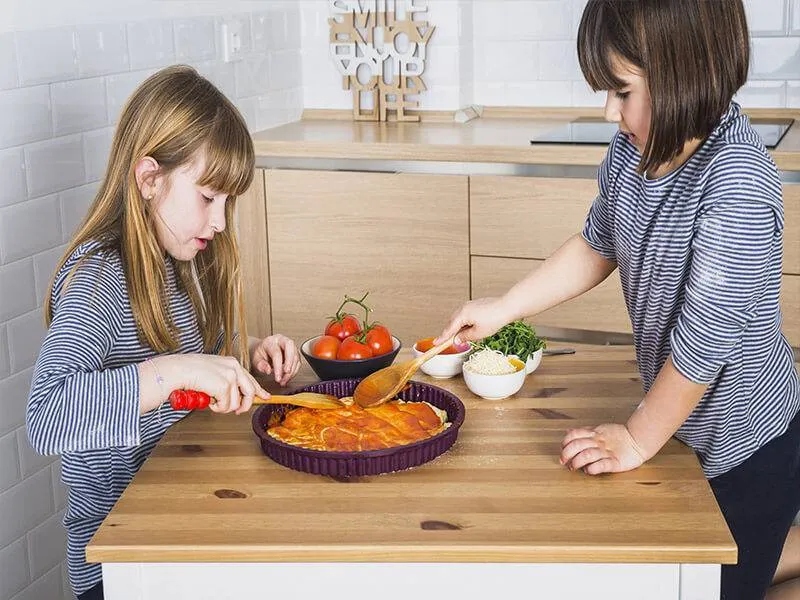
What should a 6-year-old be able to do independently?
At the age of 6, children have typically developed a greater sense of independence and self-confidence. They should be able to handle basic self-care tasks on their own, such as getting dressed, brushing their teeth, and washing their hands. They may also be able to tie their own shoes, pack their own backpack, and prepare simple meals or snacks.
Additionally, they should be able to follow basic instructions and understand rules and expectations in different settings, such as school or extracurricular activities. However, it's important to note that each child develops at their own pace, and some children may be more independent or less independent than others at the age of 6. It's important to encourage and support children in their development, while also recognizing and respecting their individual strengths and needs.
How long should a 6-year-old play alone?
The amount of time a 6-year-old can play alone will depend on their individual temperament and interests, as well as other factors such as the child's developmental level and the presence of siblings or other playmates.
In general, it's important to allow children some time to play independently to develop their imagination, creativity, and problem-solving skills. However, it's also important to balance independent play with social interaction and structured activities. As a general guideline, some experts recommend setting aside at least 20-30 minutes of independent playtime each day for 6-year-olds, while others suggest that children should be allowed to engage in independent play as long as they are interested and engaged.
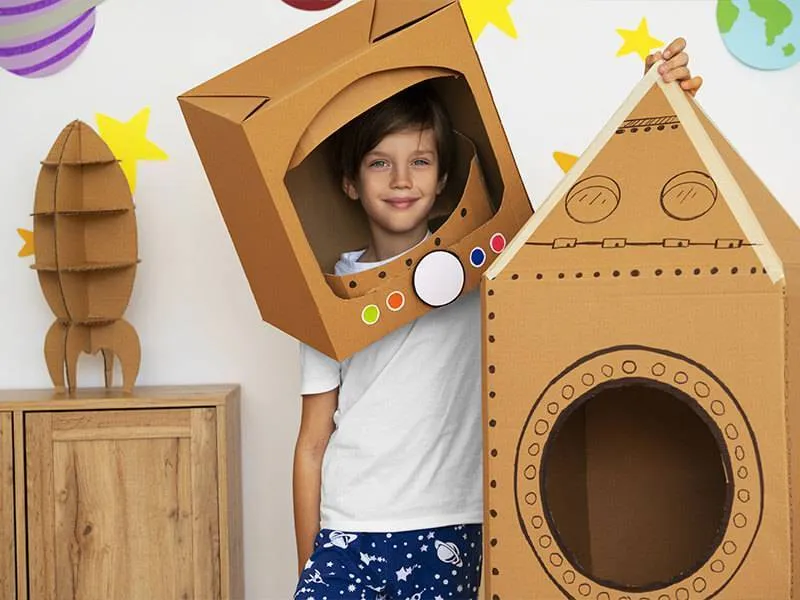
Ultimately, the amount of time a child should play alone will depend on their individual needs and preferences, and parents should aim to find a balance that works for their child and family.

How can I make my child more independent?
As children grow and develop, it is important for them to become more independent and learn how to take care of themselves. Encouraging independence in children can help build their confidence and self-esteem, and prepare them for the challenges they will face in the future. Parents and caregivers should provide support and guidance to children as they develop independence, setting appropriate boundaries for safety and well-being.
In this regard, there are many simple things that parents can do to promote independence in their children, which we will explore in the following paragraph.
Involve Them in Authentic Household Tasks:
Involving your child in authentic household tasks can be an effective way to promote their independence and self-reliance. By participating in everyday activities, your child learns practical skills that will serve them well in the future. In addition to the specific tasks they perform, they also learn the value of contributing to the household and become more invested in the success of the family unit. This type of involvement can also be a great opportunity for bonding and spending quality time together.

Design Your Space With Independence in Mind:
Creating a space that promotes independence is an important aspect of helping your child become more self-sufficient.
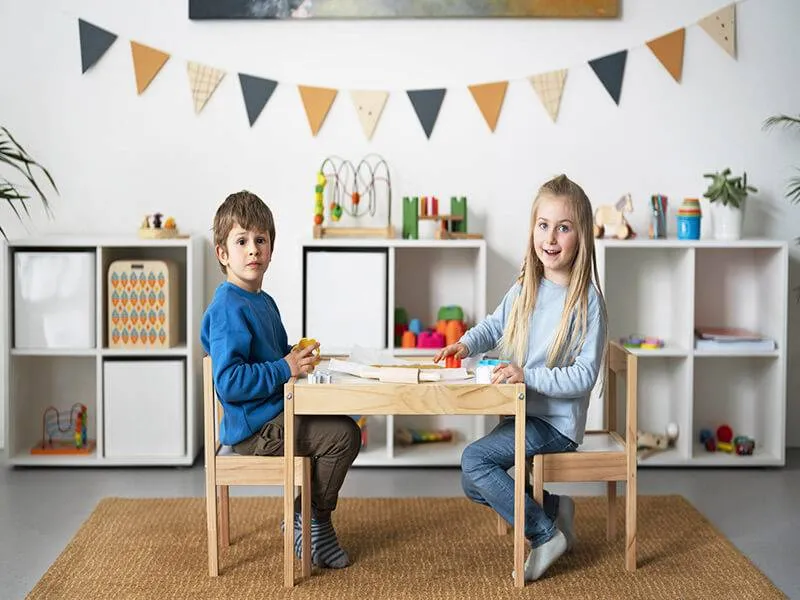
By providing child-sized furniture, such as a small table and chairs, your child can learn to use their space without relying on adult-sized furniture. Allowing your child to choose their own clothes and keeping healthy snacks and drinks within their reach can also promote independence and help them feel more in control of their own needs. These small changes can help your child gain confidence in their abilities and foster a sense of independence.
Planning Menus and Shopping for Groceries:
Involving your child in meal planning and grocery shopping is a great way to teach them important life skills and promote independence. By planning menus together, you can help your child understand the importance of healthy eating habits and involve them in the decision-making process.Taking your child with you to the grocery store and allowing them to help choose items from the list not only promotes independence but also helps develop their decision-making skills and builds their confidence.

It also provides a great opportunity for quality time with your child while accomplishing necessary tasks. For insights on turning these moments into educational experiences, check out 'Teaching Kids About Money: Essential Lessons for a Secure Financial Future'.
Caring for Younger Siblings and Other Kids:
Allowing your older child to help care for younger siblings or other children can be a great way to teach responsibility and empathy.

By giving your child specific tasks such as feeding or playing with the younger child, you are showing them that you trust and value their abilities. This can help build their self-esteem and confidence. Additionally, caring for younger children can help your child develop empathy and understanding for others, as they learn to put themselves in another person's shoes and think about their needs and feelings. It can also help them develop patience and communication skills as they learn how to interact with younger children in a positive way.
Let your children get ready for school themselves:
Encouraging your child to get ready for school on their own can help them develop important life skills such as time management, independence, and responsibility. By giving them tasks such as packing their backpack, laying out their clothes, or setting an alarm clock, you are teaching them to manage their time effectively and prioritize their responsibilities. This can help them become more organized and self-sufficient in the long run.

Furthermore, when children are given the opportunity to take care of themselves, they gain a sense of independence and confidence in their ability to handle tasks on their own.This can be a big boost to their self-esteem and help them feel more capable and in control of their own lives. It also prepares them for future challenges and responsibilities, such as managing their own schedules and taking care of themselves when they leave home. Check out " when children should start getting themselves up and ready for school" for more insights.
Encourage Your Child to Attend Play Dates or Sleepovers
Allowing your child to attend social events like play dates or sleepovers can help them develop important social skills and become more independent. When they are in these situations, they have the opportunity to learn how to interact with other kids without the guidance or presence of a parent. They can learn how to negotiate, compromise, and resolve conflicts on their own.

It also gives them a chance to practice communication and socialization skills.By allowing them to attend these events, you are showing them that you trust them to make good choices and take care of themselves in social situations, which can boost their confidence and independence. However, it is important to ensure that the events are safe and age-appropriate and that your child is prepared with any necessary supplies or information before attending.
Keeping Track of Homework and Tests
Teaching your child how to manage their schoolwork can be as simple as creating a designated study space for them, helping them break down larger assignments into manageable tasks, and using a planner or digital calendar to keep track of important due dates and exam dates.
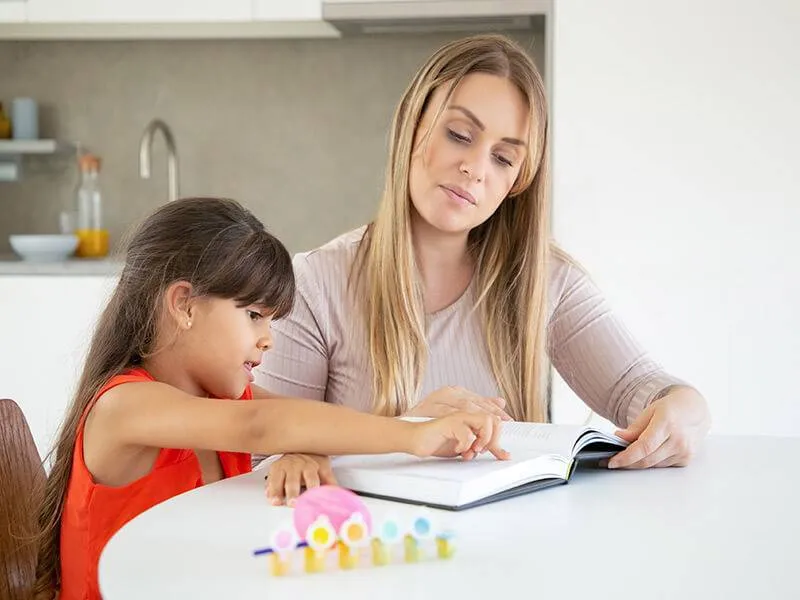
Parents can also help their children develop good study habits by creating a routine and encouraging them to stick to it. This routine should include setting aside a specific time each day for homework and studying, as well as a designated study space free from distractions. Encourage your child to take breaks as needed and use this time to engage in physical activity or hobbies that they enjoy, as this can help improve their focus and overall academic performance.
By teaching your child how to manage their schoolwork and stay organized, you can help them develop the skills they need to become independent and succeed in school and beyond.
Organizing Their Own Schedule
Encourage your child to plan their day and manage their time effectively. This will help them develop important time management skills. When kids are young, their schedules are typically managed by their parents, teachers, or other caregivers. However, as they get older, it becomes important for them to learn how to manage their time and plan their day effectively. Encourage your child to create a daily schedule that includes time for homework, chores, extracurricular activities, and free time.
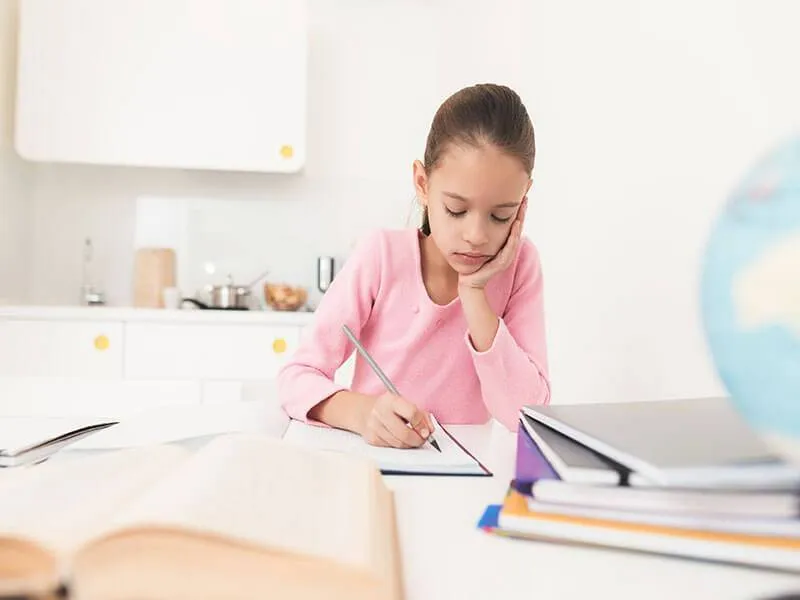
They can use a planner, calendar, or smartphone app to keep track of their schedule.
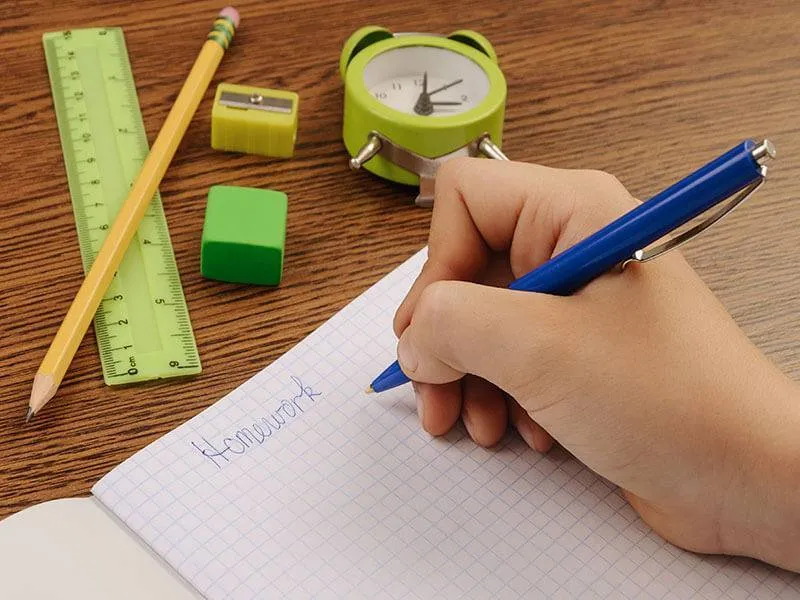
Then teach your kid to organize her/his own schedule helps them develop important time management skills that she/he will use throughout her/his life. These skills include prioritizing tasks, breaking down larger tasks into smaller, manageable ones, and managing their time effectively to ensure that everything gets done. By learning to manage their own schedules, children become more responsible and independent, and they are better prepared to handle the demands of school, work, and other activities as they grow older.
Teach your child to Be Independent Thinkers
In addition to the above tips, it is important to teach your child to be an independent thinker.
Being an independent thinker is an important skill that children need to develop as they grow up. Independent thinkers are capable of forming their own opinions, making their own decisions, and analyzing situations critically.
Encouraging children to think independently can help them become confident and self-reliant individuals who can make informed decisions in life. This means encouraging them to form their own opinions and think critically about the world around them.

Here are some ways you can do this:
- Ask your child open-ended questions to encourage them to think for themselves and express their own thoughts and ideas
- Give your child opportunities to solve problems on their own to help them to become more self-reliant
- Encourage your child to explore new ideas and take risks to develop a growth mindset and a willingness to try new things, even if they are not sure they will succeed.
- Teach your child to evaluate information and sources critically to become more discerning in their decision-making, and less likely to be swayed by false or misleading information.
- Encourage your child to speak up for themselves and stand up for what they believe in to become confident and assertive, and to feel comfortable expressing their opinions and advocating for themselves. By teaching children to be independent thinkers, parents can help them develop the skills and confidence they need to navigate the challenges of life with resilience and self-assurance.

Conclusion: Tips for raising independent children
promoting independence in children is an essential aspect of their growth and development. Encouraging your child's independence helps build their confidence and self-esteem, and prepares them for the challenges they will face in the future. Parents can help promote their child's independence by involving them in household tasks, designing their space with independence in mind, and supporting their development in various areas such as cognitive, language, social and emotional, physical, sensory and perceptual, and creative development. However, it's important to note that each child develops at their own pace, and it's important to respect and support their individual needs and strengths.




